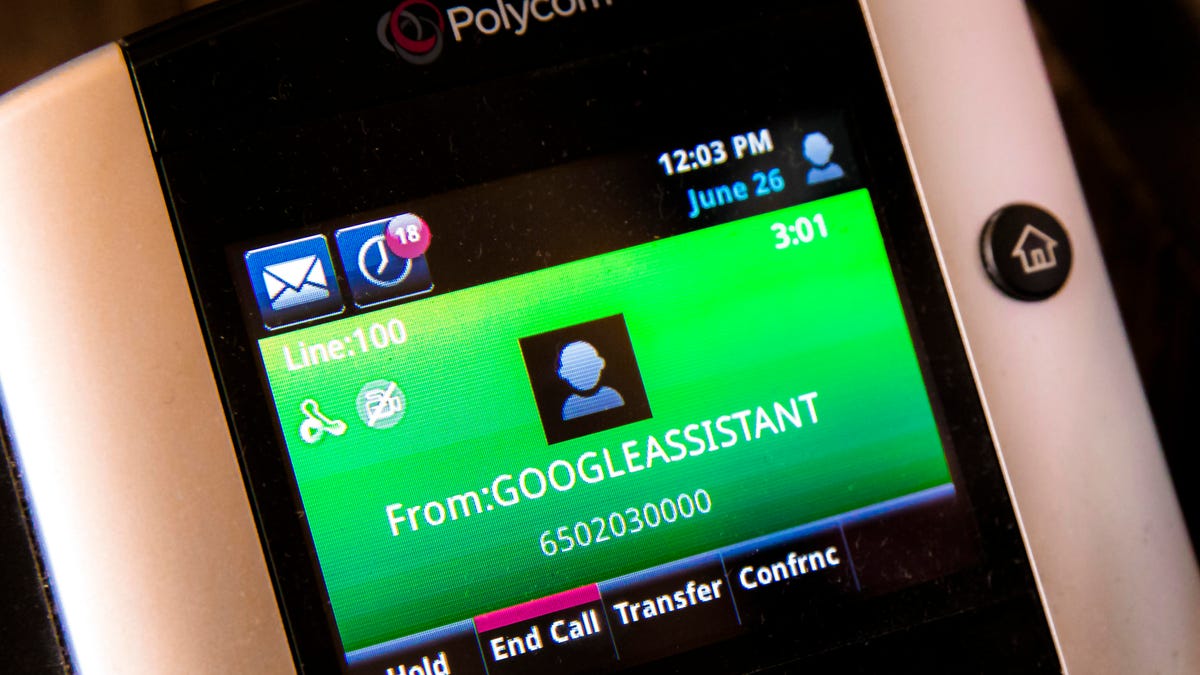Google says no, Duplex AI won't take over human call centers
Reports claimed that one company is looking to use the tech for customer service, but Google denies this.

With Duplex, the Google Assistant will call restaurants and salons to make reservations on your behalf.
Google Duplex is a technology that's designed to work for people, not take their jobs -- at least, according to Google.
When Google unveiled Duplex at its I/O conference in May, it caused quite a stir. The technology is an expansion of its Google Assistant AI that is meant to sound much more human. Google says the main purpose of Duplex is to use AI to call businesses on your behalf. Let's say you want to make a haircut appointment at a trendy new salon. Duplex can call them for you so you don't have to negotiate or be put on hold.
Now a company is reportedly looking to use Duplex the other way around: on the behalf of the businesses to talk to people. The Information reports that an unnamed insurance company was investigating ways to use Duplex in call centers to handle customer service, but Google denies this. A Google spokesperson gave CNET the following statement:
"We're currently focused on consumer use cases for the Duplex technology where we can help people get things done, rather than applying it to potential enterprise use cases. We aren't testing Duplex with any enterprise clients. Duplex is designed to operate in very specific use cases, and currently we're focused on testing with restaurant reservations, hair salon booking, and holiday hours with a limited set of trusted testers. It's important that we get the experience right, and we're taking a slow and measured approach as we incorporate learnings and feedback from our tests."
The Information report later adds that the insurance company slowed work on the project due to ethical concerns. The idea of calling a customer service rep and not knowing whether you're talking to a robot or a human is a bit unsettling. But Google assures that this isn't the case -- yet.

